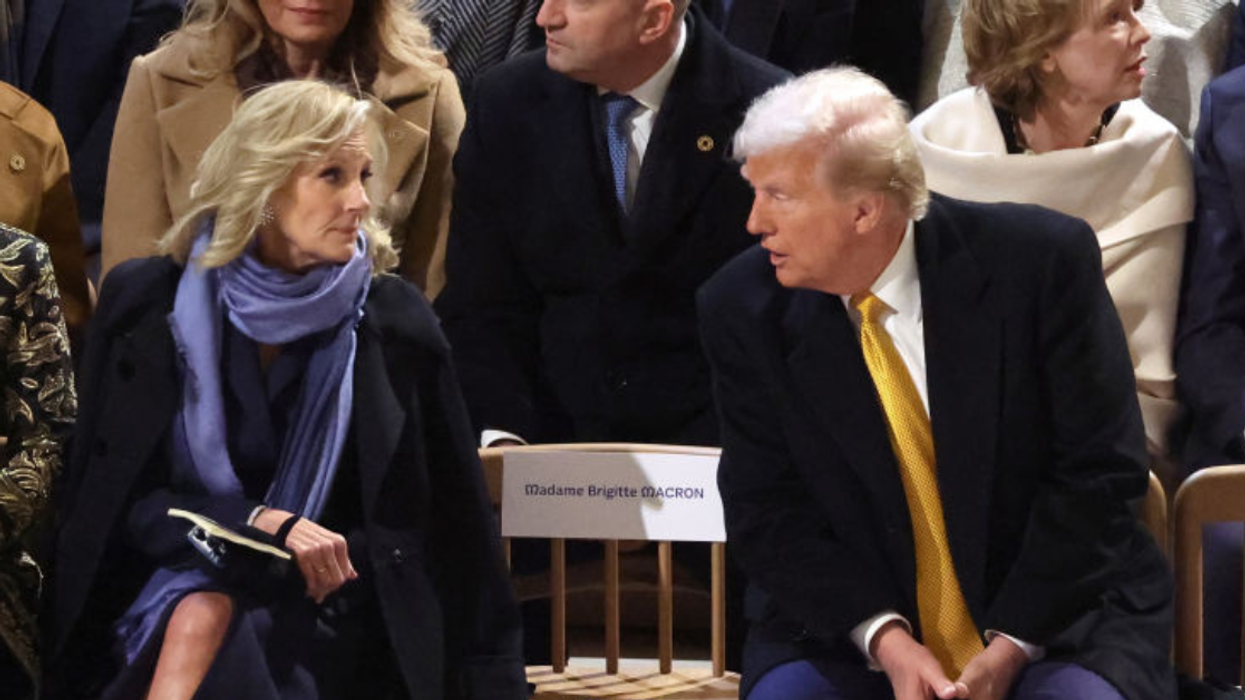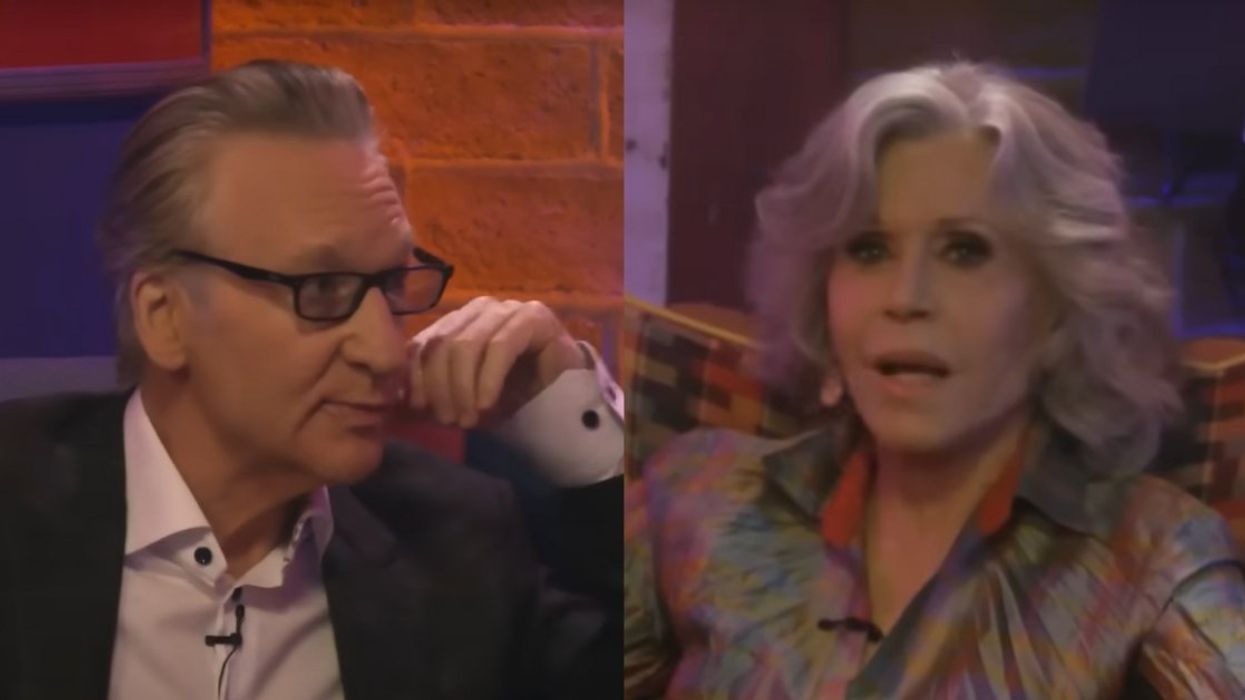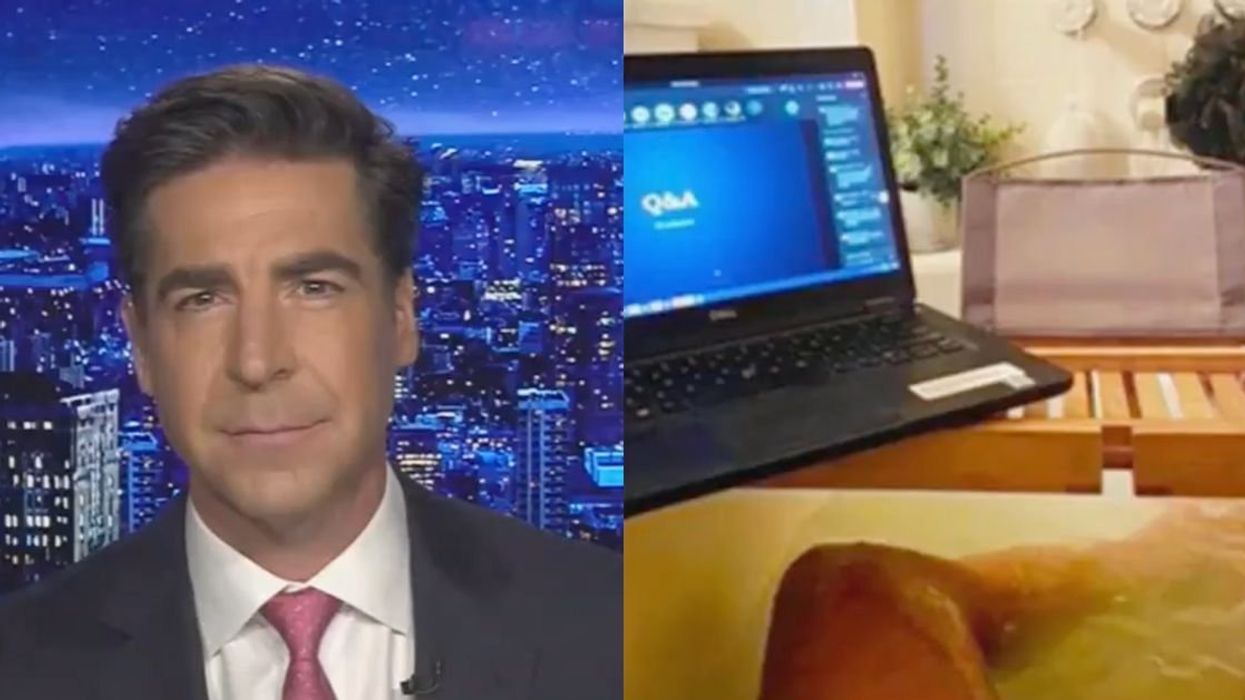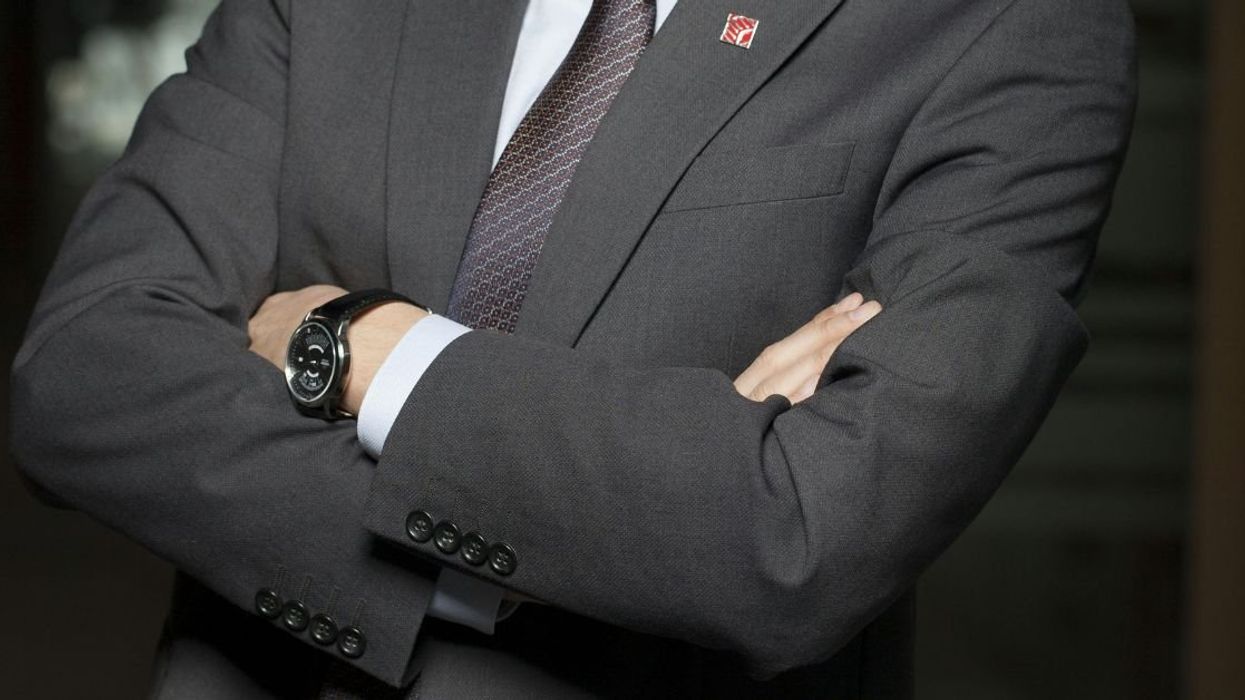It feels like the workplace is constantly changing, especially since the pandemic, with more people working from home, more systems being automated, and more social pressure for workplaces to evolve.
But it's even more jarring to think of how much the workplace has changed for those who have been in the workforce for many decades and how seemingly every aspect of their work has changed... at least once.
Redditor LightningStrikes818 asked:
"Redditors who are 50 years old or older, what has changed the most about working when you started working vs. working nowadays?"
Dress Codes
"Skirts/dresses and pantyhose required of women in many offices through the 1990s."
- hhhmmm0
"Flipside: suits and ties, buttoned-up shirts. Brutal in summer."
- ridleyfiredome
"Pantyhose were high maintenance. I had to have an extra pair in my desk drawer in case of a major run. I had clear nail polish at home and work to stop any runs above the hemline."
"Pantyhose were expensive, I had nice department store hose for special occasions, and bulk mail order hose for daily wear. They had to be washed in mesh bags and hung to dry."
"In the summer I’d get swamp crotch when it was hot and humid, and heat rash on my thighs where they rubbed."
"Heels had to be polished and the heel tips replaced at the shoe shop. Most office clothes were dry clean only, and it was expensive, and yet another errand. Office clothes were expensive, I didn’t have many clothes, I had to plan what to wear and time the dry cleaning."
"I don’t miss the nightmare of heels and hose from the 80’s."
- phineasminius
Electrical Transfer, Who?
"Having to go to the bank to cash my paycheck."
- Cndngirl
"Oh my god, yes, and we needed to wait until after 3:00 PM to cash it."
- Big-Reflection-104
Work and... Strip Clubs?
"We took a company van with a logo on it to take out-of-town guests to a strip club. I don’t even think I can say that out loud at work today."
- scruffles360
"Strip clubs were standard practice. Especially in sales. Many deals closed in those places over my career."
- YOU_WONT_LIKE_IT
Smoking Spaces
"People smoking indoors. Clouds of smoke everywhere in the office and no way for a nonsmoker to avoid it. That was the norm so you just had to suck it up."
- andBobsyourcat
"Yes, at one stage I had the misfortune of sitting next to someone who used to smoke a pipe. I could barely see my computer screen at times for the clouds of smoke."
"Also, the IT support guy would come over to do something and he always had a cigarette dangling from his lips, dropping ash into my keyboard. Urgh! Different times!"
- MickSturbs
Office Parties of Old
"Man, in state government, all the older employees have similar stories of work parties in the 90s. Booze everywhere, smoking, people dancing, and having fun. Everyone brought their spouses, etc."
"Now you're lucky if you see a Christmas cake. People wonder why everything feels like it's coming apart at the seams and people are so unhappy. That aspect of being a human being fun, even at work is gone."
- t00sl0w
"I'm a millennial in industrial equipment sales, and it genuinely feels like you showed up to a party about an hour after everyone was gone."
"Nowadays, I can't even have a beer with dinner and expect to expense it."
- titsmuhgeeee
"Oh man, the office Christmas parties then, versus now?? Forget about it. Like comparing a wedding to a funeral."
- Schyznik
Safety Precautions
"I'm 42 but feel like I want to chime in."
"Health and safety has changed loads. You wouldn't get away with half the sh*t we did when I was 17."
- section4
Constantly, Always Sitting
"I watched office work go from sedentary to virtually immobile. We used to retrieve paper files, pass memos around, and consult with coworkers in other sections and floors."
"Now everything is available on the screen in front of us, everything can be shared with a few clicks. It’s convenient, but so unhealthy."
- MathematicianWitty23
What's a Pension Again?
"Hardly anybody has a pension anymore."
- whitewolfdogwalker
"That's where I feel really lucky to be in Australia, we have mandatory superannuation (a percentage of your pay plus employer contribution goes into a fund for your retirement) and most people will also qualify for an age care pension in addition to their super."
"The pension isn't really enough for our current seniors who don't have much super (due to the timeline of when it was introduced) but generations after that should be relatively well set up for retirement."
- TheGardenNymph
Work Availability in General
"I'm in the UK."
"It was a great deal easier to find work. You'd get vacancies posted in various places and could go down to the Job Centre, browse vacancies posted on postcards on boards, pick out the jobs you were interested in, and get a member of staff to arrange an interview for you. Just like that."
"Dress codes were more formal and you actually had to go to work. If you worked in an office for the right company work finished Friday lunchtime when you'd go with your colleagues to the pub. You'd go back after the 'liquid' lunch hour and work Friday afternoon, but no sh*t got done and work piled up for Monday."
"You got paid either direct debit, cash or if you were unlucky by cheque. You had to deposit your cheque in the bank or building society and wait for the cheque to clear, usually four days, but sometimes 10 days. If you got paid cash you'd get it in a small brown envelope known as a wage packet which listed all deductions on the outside. It still felt good to tear open the wage packet and take out the cash."
- ElvishMystical
The Value of Employees
"That you chose a career, and you worked for an employee, and they valued your experience. You rose in the ranks of your profession, you became a valued team member, and you stayed until you retired."
"Changing jobs often is frowned on; if you make a job commitment, you follow through on it. People get bothered and quit/move/change really quickly now. That's not necessarily bad, but it has created a gap in expertise; everyone is new all the time, and there isn't any value in having experience."
"If you happen to be an elder in your field with some level of legacy knowledge; it doesn't seem to matter because your boss is likely younger than you and less experienced."
"There used to be jobs what you did to get paid and live, and careers, what you did because you wanted to invest time into being good at something, AND that was how you made a living."
"Moreover, you went to school to be in a career. So you put time and energy into attaining your job, therefore you'd want to stay in it and grow. In theory."
"I'm not sure anyone cares about being in a career anymore. Because we all feel so betrayed by the system; wages not keeping up with COL, inflation, (and inflation subsiding and prices staying high because it's what the market will bear), and when everyone is replaceable, then no one is an expert."
"I'm GenX. I work in healthcare. I work in a broken system that no one actually wants to fix. Those of us working in this system are now just grist for the mill. It's too bad because we spent a lot of time and money going to school to be able to work in our chosen field."
"In contrast, my mom was also a nurse. She had a career. She worked in it until she was 70 and retired. She worked with a team that mostly stayed the same, over decades. I don't work with anyone I started with at my job six years ago."
- bunnehfeet
Business Phones
"People used to answer their business phones."
- BornFree2018
"Oh my god, work landline numbers. I never see those anymore. I don’t even have a phone number in my email signature at work anymore."
"And business cards used to be such a big deal. I used to get really excited to see my name and title in print. I would always send my parents one when I got a new job. What a dork!"
- ptpoa120000
What Work-Life Balance?
"There was a lot more understanding back in the 80's and 90's that each employee had a life outside of work, and work would end at 5:00 PM. You could leave work and go do something that you liked, maybe a martial arts class or some learning workshop somewhere."
"There were no phone calls. Text messages and email hadn't happened yet. Pagers were rare. People were in better shape. They had time to workout and were encouraged by their bosses to go do something to keep in shape."
"These days, it's the opposite. There's no encouragement from your boss or your coworkers other than to just work around the clock. You're never 'off.' Emails, text messages, Slack messages, video calls, and 'tickets' from your company's internal issue tracking system come in at all hours of the day."
"You're tracked in every way possible these days. You're given impossible deadlines. It now takes incredible willpower to break free and 'sneak' away to go workout. You're exhausted all the time, so you lose the desire to workout. You just want sleep."
"Instead of meeting up with friends somewhere for dinner, you are happy to just get home, get something hot to eat from your microwave, and numb yourself by watching YouTube and Reddit."
"What you do now during your downtime is very low quality and is just done to unwind from the stress that follows you no matter where you are. They call this Flex Time, and its purpose is ostensibly to give you the ability to walk away from your work and go enjoy life. Funny."
- mhv64sj
New Measures of Success
"Working for a company for many years was seen as honorable and a sign you were a good worker."
"Now it’s viewed as someone complacent, scared of change, and stupid for not salary hopping."
"I don’t disagree, though; I’ve been at my company for a long time and it’s anything but complacent and always changing."
- MysteryMeat11
"This is why we in-betweeners especially (between gen-x and millennial) have been conflicted and confused about it all. We were raised by older boomers and heard it's best to stay with companies because it looks bad on resumes to not and can even affect your buying things like houses and cars."
"But then when we did, we were let go during times like the recession and cutbacks having to start all over again, on top of not getting raises like the new hires and then confused because we were told staying and being loyal looked good and led to success."
- fidgetypenguin123
A Literal Paper Trail
"Paper. Lots of paper."
"Before email, there were people (secretaries or admins) who would take a memo someone printed out on their computer, make physical copies, and either walk around to every executive’s desk, or put into inter-office mail. This memo could be to a few people, one person, or for a general announcement needed to go to everyone."
"For expediency, these memos would also be posted in public areas (lunchroom, messaging board) if it was a general notice. These memos were often routed from the head manager throughout the department if it was more for general information."
"We once had a wave of new hires (about 20 people in our company of 400) and each got their own announcement. So, 20 people and 50 copies was two reams of paper. Copied. Hand carried or inter-department mailed. For one set of announcements."
"Oh, and each department admin had their own routing slip (small piece of paper with each person in the department’s name) that was stapled to the announcement. When you got the memo, you read it, crossed your name off, and gave it to the next person on the list."
"That’s where 'they must not have gotten the memo' comes from."
- UncleGizmo
It's interesting to look back on how things have changed. While some things have definitely improved, like improved safety precautions and more relaxed attire, other things like a sense of work-life balance have certainly declined.
If people were able to choose their working conditions, it'd be interesting to see if they'd choose today's working conditions or a different work-life balance...





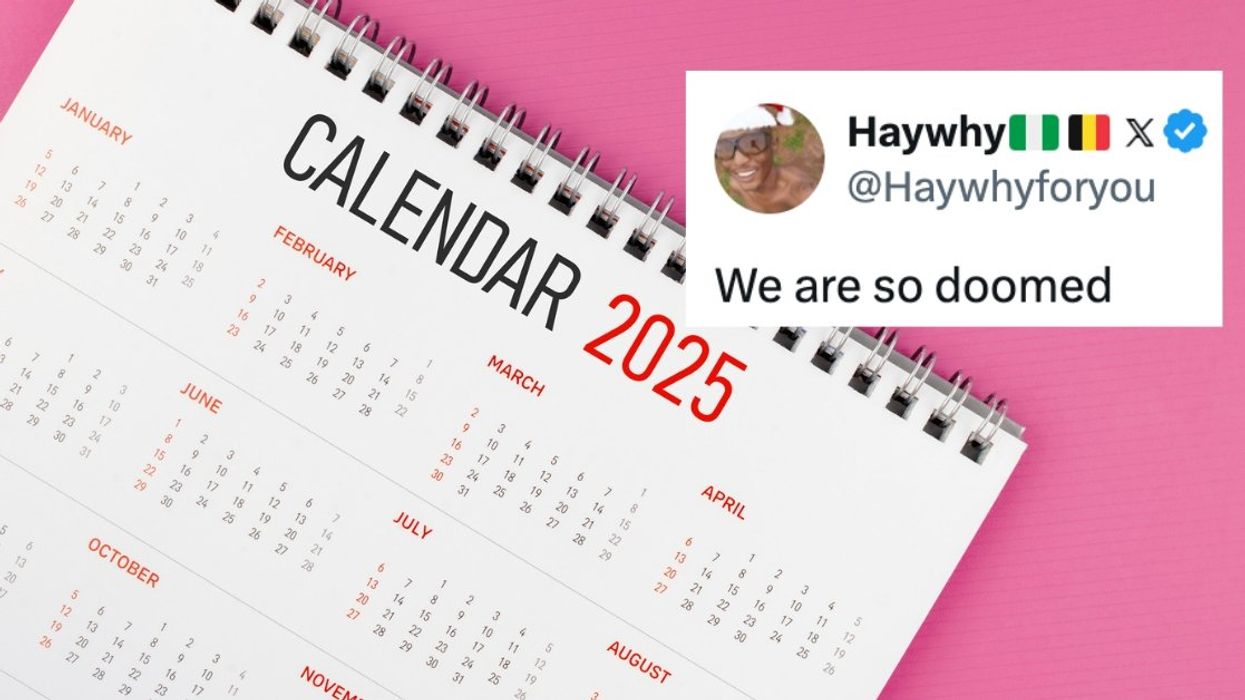


 @bahamasholly/TikTok
@bahamasholly/TikTok @bahamasholly/TikTok
@bahamasholly/TikTok @bahamasholly/TikTok
@bahamasholly/TikTok @bahamasholly/TikTok
@bahamasholly/TikTok @bahamasholly/TikTok
@bahamasholly/TikTok @bahamasholly/TikTok
@bahamasholly/TikTok @bahamasholly/TikTok
@bahamasholly/TikTok @bahamasholly/TikTok
@bahamasholly/TikTok @bahamasholly/TikTok
@bahamasholly/TikTok @bahamasholly/TikTok
@bahamasholly/TikTok @bahamasholly/TikTok
@bahamasholly/TikTok @bahamasholly/TikTok
@bahamasholly/TikTok @bahamasholly/TikTok
@bahamasholly/TikTok @bahamasholly/TikTok
@bahamasholly/TikTok
